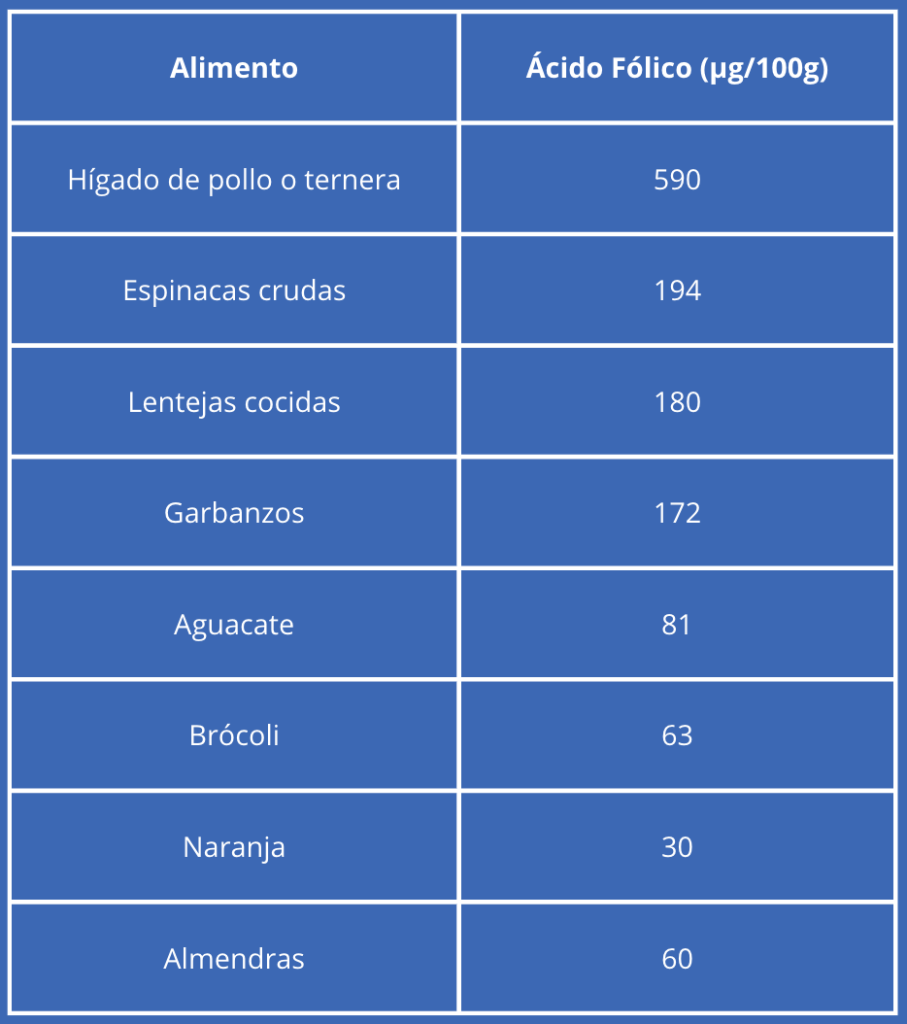Folic acid, also known as vitamin B9, is an essential nutrient during pregnancy. Proper intake before and during pregnancy significantly reduces the risk of birth defects, such as spina bifida, and supports the development of the baby’s nervous system.
In this article, you’ll discover the role of folic acid in pregnancy, the correct dosage, which foods contain it, and when to start taking it—even if you’re not yet pregnant.
Benefits of Folic Acid During Pregnancy
Taking folic acid daily is a recommendation supported by gynecologists and international organizations such as the WHO. Here are some of its key benefits:
🧠 Promotes fetal neurological development from the earliest weeks.
🔬 Prevents neural tube defects (such as spina bifida and anencephaly).
🧬 Supports the formation of DNA and RNA, which are essential for cell division.
🩸 Aids in the production of red blood cells and helps prevent megaloblastic anemia.
How Much Folic Acid Should You Take and When to Start?
Recommended Dosage:
- Women of childbearing age: 400 mcg/day
- Pregnant women: 600 mcg/day
- Breastfeeding women: 500 mcg/day
- Special cases (e.g., history of birth defects): up to 4–5 mg/day, under medical supervision
When to Start Taking It?
Ideally, you should begin taking folic acid at least one month before conception and continue daily through the first trimester. Since many pregnancies are unplanned, it’s recommended that all women of childbearing age take folic acid as a preventive measure.
Folic Acid-Rich Foods for Pregnant Women

Although supplements are ideal, you can boost your diet with natural foods rich in folate:

Avoid overcooking vegetables: prolonged cooking destroys some of the folate.
Do You Need to Take Folic Acid Supplements?
Yes. While a balanced diet is important, the natural amount of folate in food is often insufficient—especially during critical stages like the first trimester.
What Type of Supplement Should You Choose
- Pure folic acid supplements (recommended)
- Combined prenatal vitamins
- Some brands include active folate (methylfolate), which is easier to absorb for people with MTHFR mutations
Always consult your gynecologist to choose the supplement that’s right for you.
Risks of Folic Acid Deficiency During Pregnancy
Not getting enough folic acid can lead to:
- Neural tube defects (spina bifida, anencephaly)
- Congenital heart defects
- Cleft lip and other facial abnormalities
- Maternal anemia, fatigue, and risk of premature birth
Frequently Asked Questions About Folic Acid and Pregnancy
Does folic acid help with getting pregnant?
Yes. It improves egg and sperm quality, increasing the chances of conception.
What time of day should you take folic acid?
Ideally in the morning with breakfast, to aid absorption. If it causes nausea, it can be taken at night.
Can you take it if you’re not pregnant?
Yes, it’s recommended for all women of childbearing age—especially if planning a pregnancy.
Does folic acid cause weight gain?
No. It contains no calories and does not affect body weight.
Folic acid isn’t just important—it’s vital for healthy pregnancy development. Whether you’re already pregnant or planning to be, make sure to take the proper daily dose, combining a folate-rich diet with supplements if necessary.
At Fertility Madrid, we can help you plan a healthy pregnancy from day one.




 C/ General Oráa 47, 28006, Madrid
C/ General Oráa 47, 28006, Madrid (+34) 910 052 808
(+34) 910 052 808

 Appointment
Appointment 




